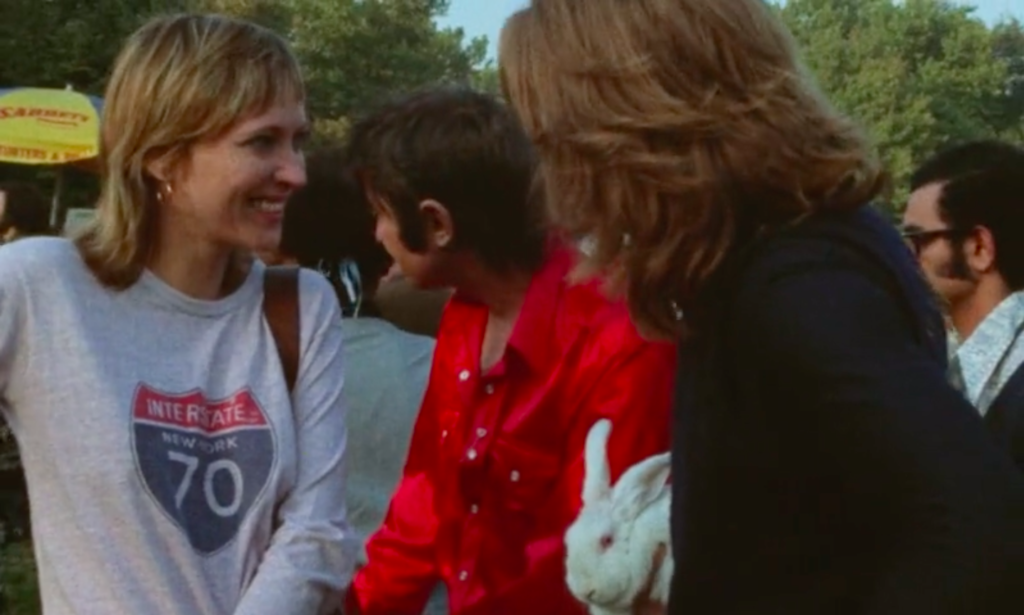
In 1973 Anna Karina released her directorial debut Vivre ensemble. To this day audiences go into Vivre ensemble expecting something like Made In U.S.A. (1966) or Bande à part (1964), as if Anna Karina were nothing more than some magical entity dreamed up by Jean-Luc Godard. Karina’s legacy may be tied to those films she made with Godard but her work owes little to the master of the French New Wave. The only thing that Vivre ensemble takes from Godard is the structure of Vivre sa vie (1962) which it in turn lifted from Pandora’s Box (1929).
Vivre ensemble is a kind of collage of images that interest Anna Karina which are then scattered around those pictures that tell the familiar story of a love affair that has soured. Karina’s approach to filmmaking isn’t to select images for their narrative economy nor to create a rich tableau or milieu. Karina’s background is in acting so Vivre ensemble is a film that records actors in the state of “being”; living in the skins of characters as they navigate sights and sounds that Karina and her crew merely happen upon.
In a way it’s fitting that so much of Vivre ensemble takes place in New York City since Vivre ensemble is so derivative of the underground narrative features that originated there. But where the best of these underground narrative films benefit from exceptional performances (Robert De Niro in Greetings) or from documenting a unique subculture (Warhol and Morrissey’s Chelsea Girls), Vivre ensemble seems to flail about looking for emotional urgency and cultural relevance.
This isn’t to say that Anna Karina’s film isn’t moving or provocative at times, it just seems to be over reaching. Those disturbing scenes of domestic abuse or of frank sexuality exemplify the kind of harrowing chamber drama that Vivre ensemble should have been. But Karina’s ambitions pushed her to make a film that is unable to focus on the dramatic elements necessary to the story.
As a deeply flawed film there is still something that makes Vive ensemble compulsory viewing, and that is Anna Karina herself. Few actors in the history of cinema possess the unique verve and charisma of Anna Karina. As soon as she enters a scene it becomes impossible to look away because suddenly there is life. And by that I mean the anarchistic spontaneity of existence is manifest completely in her being. The promise that something or anything could happen exudes from Karina’s person at all times. So if Vivre ensemble accomplishes anything it is a record of Anna Karina as she felt she should be seen as an actor.
